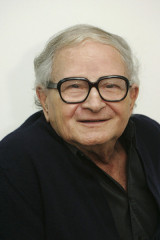 |
| Rafi Eitan |
When I was 12 years old, I knew as much about Adolf Eichmann as I did about Marilyn Monroe.
Eichmann was on trial in 1961 for designing the Nazi plans to deport and exterminate Jewish people.
At our house in Boulder, Colorado, the Rocky Mountain News and the Boulder Camera arrived daily with details on his crimes during the Holocaust.
I probably never heard the name of the Israeli spy who captured Eichmann in Argentina and smuggled him to Israel to face trial. It was Rafi Eitan, who died on March 23 at the age of 92.
Hooray for the work Eitan did!
Read this fascinating obituary in the New York Times by Joseph Berger.







.jpg/220px-Pete_Buttigieg_-_33249197628_(cropped).jpg)


